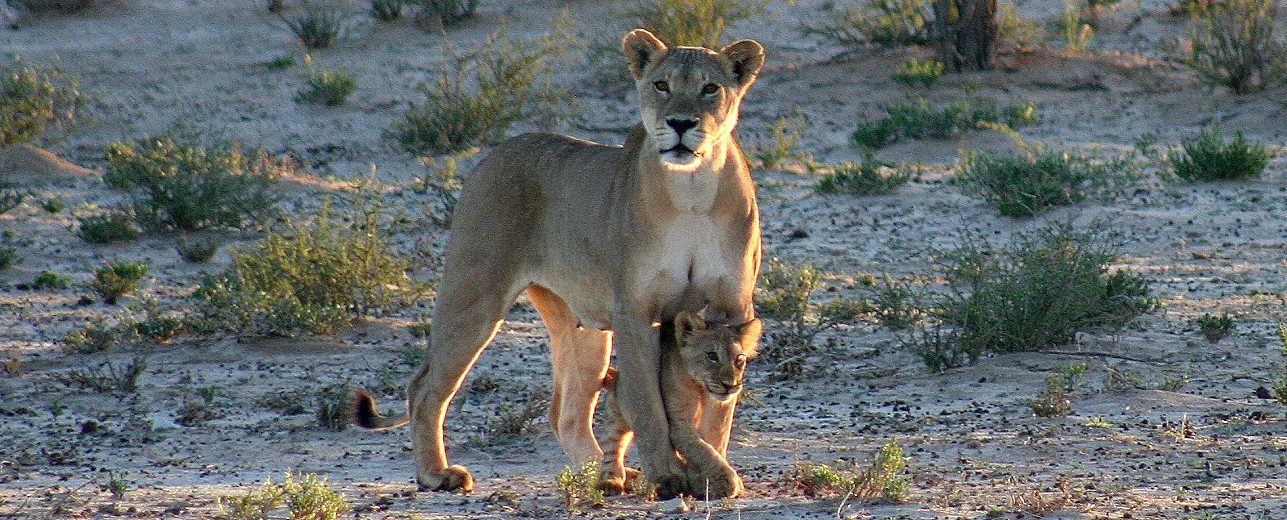The most important publication issued since the first report from the Intergovernmental Panel on Climate Change has gone largely unnoticed in the conservation world.
The Laudato Si is a 200 page position paper issued by the Catholic Church on the impact humans are having on Planet Earth. Published in May 2015 the document is a call-to-action to redress the damage we’ve caused to Mother Nature.
Like his namesake from Assisi, Pope Francis reminds us that “our common home is like a sister, with whom we share our life, and a beautiful mother, who opens her arms to embrace us”.
“This sister now cries out to us because of the harm we have inflicted on her by our irresponsible use and abuse of the goods with which God has endowed her,” says Pope Francis. “We have come to see ourselves as her lords and masters, entitled to plunder her at will. The violence present in our hearts, wounded by sin, is also reflected in the symptoms of sickness evident in the soil, in the water, in the air and in all forms of life.”
The Vatican has been moving towards this declaration for some time.
Although it is under Francis’s papacy that the Laudato Si has been published all credit cannot go to him. The Vatican has been moving towards this declaration for some time.
Pope Paul VI referred to the rising ecological concern as “a tragic consequence” of unchecked human activity back in 1971. “Due to an ill-considered exploitation of nature, humanity runs the risk of destroying it and becoming in turn a victim of this degradation.”
He also said: “…the most extraordinary scientific advances, the most amazing technical abilities, the most astonishing economic growth, unless they are accompanied by authentic social and moral progress, will definitively turn against man”. Prescient words indeed.
During his papacy (1978 to 2005 ) John Paul II also became increasingly concerned with the issue. He warned that human beings frequently seem “to see no other meaning in their natural environment than what serves for immediate use and consumption”. He called for moral conditions on an authentic human ecology.
Here we get closer to the heart of the Laudato Si – the immorality of environmental destruction. “Authentic human development has a moral character. It presumes full respect for the human person, but it must also be concerned for the world around us and ‘take into account the nature of each being and of its mutual connection in an ordered system’.”
The deterioration of nature is closely connected to the culture which shapes human coexistence.
And then Pope Benedict XVI proposed “eliminating the structural causes of the dysfunctions of the world economy and correcting models of growth which have proved incapable of ensuring respect for the environment”. “The deterioration of nature is closely connected to the culture which shapes human coexistence,” he warned.
We’re beginning to see a cultural groundswell in global human misery that is increasingly hard to ignore. Acts of terrorism, riots and mass migration fill our screens and ears every time we turn on the news.
More and more people are driven to flee, to grab at any means possible to survive. And look where they’re running from. They’re places denuded of vegetation, deserts created by bad livestock husbandry, with only vestigial wild fauna remaining – usually insects, reptiles or migratory birds. In short, they’re barren wastelands created by mankind.
That modern forms of terrorism are funded by the ill gotten gains of poaching is well known, cementing the link between environmental destruction and human misery further.
And then there’s the illegal wildlife trade, where species are exported alive or dead en masse to markets all around the world, but most especially Asia. The trade is run by sophisticated criminal cartels that have interests in drugs, human trafficking and arms. Yet a further direct connection between the slaughter of innocent animals and human suffering.
The world’s poor are the first to feel the effects of environmental destruction, whether they be polluted waters, infertile fields, air pollution, destroyed fisheries or any of the consequences mentioned above, but that doesn’t mean that the world’s rich are safe.
Far from it. Mass migration, terrorism, air and sea pollution, and of course climate change, affect everyone, rich and poor. No-one is secure.
With an estimated 1.2 billion Catholics in the world the reach of the Laudato Si is not to be sneezed at, and while it articulates the spiritual and moral reasons to care for the earth, it also expresses a much more fundamental reason to take note – human survival.
Pope Francis clearly states at the beginning of the Encyclical that it is addressed to all people of goodwill regardless of creed. It’s a timely document of universal importance.
Related reading: Rebranding environmental crime as a crime against humanity.
